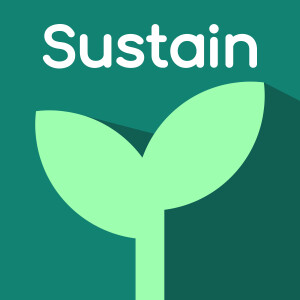
Episode 86: Kavita Kapoor and HFOSS: Humanitarian Free and Open Source Software
 2021-07-23
2021-07-23
Kavita Kapoor
PanelistsEric Berry | Eriol Fox | Alyssa Wright | Richard Littauer
Show NotesHello and welcome to Sustain! The podcast where we talk about sustaining open source for the long haul. Our special guest today is Kavita Kapoor, Founding Member and Strategy Director of the Federation of Humanitarian Technologists. Kavita tells us all about the Federation of Humanitarian Technologists, how things are going there since they started, and a project they started. We learn from Kavita why she thinks it’s important that children learn about technology, she gives incredible advice on how a tech person can get involved with the humanitarian efforts, and why it’s important to live your mission and visions. She also tells us her perspective and shares a personal story on the lack of gender diversity in tech jobs, as well as not enough LGBTQ plus spaces for the tech community especially in the UK. Kavita is amazing, so go ahead and download this episode to hear more!
[00:03:11] Kavita tells us all about her herself, her involvement in the Shorinji Kempo martial art, and how she met Mike Nolan, who is the other Founding Member of the Federations of Humanitarian Technologists.
[00:05:45] We learn all about the Federation of Humanitarian Technologists.
[00:07:45] Kavita talks about how they hired their first Humanitarian Aid Director and how everything is going there.
[00:09:55] Eric wonders where those lines cross in open source versus what Kavita is working with humanitarian efforts.
[00:13:00] Eriol asks Kavita if open source software and the open source community offer more opportunities for these Non-governmental organizations and charities to build capacity around their technology.
[00:15:24] Find out why Kavita thinks it’s important that children learn about technology, and whether open source can be part of that education and how early should it be.
[00:19:13] Richard wonders why Kavita is so interested in the membership organizations such as OpenUK and the Federation of Humanitarian Technologists.
[00:21:33] Eric tells Kavita she is a powerhouse and wonders how she has time to do the things that she’s doing and also wonders if she has any other passions.
[00:22:30] From the technologist side, Kavita tells us how a tech person can get involved with the humanitarian efforts such as hers and do that in a sustainable way for them, emotionally as well as financially.
[00:26:43] Eriol asks to hear Kavita’s perspective on things that she’s witnessed when people with tech skills do get engaged with these kinds of projects, but the barriers that she’s perceived and the ones that she’s tried to knock down so they can participate. She talks about gender diversity and not enough LQBTQ plus spaces for the technology community, especially in the UK.
[00:31:54] Find out where you can follow Kavita online.
Quotes[00:06:40] “And I think it’s what we all realized when we work for organizations of different scales is that it’s really difficult sometimes to scale up and have the infrastructure, especially when you’re working on projects that are all funded for the end goal, for the end impact.”
[00:17:31] “So I went off and became COO of the Micro:bit Educational Foundation and we went around the world. We went to into sixty countries during my tenure. We went from a million devices in the UK that was given away free, four million devices around the world, and some of the kids that we worked with were incredible.”
[00:19:59] “But actually, when I’ve been working for profit organizations, I’ve never felt that I could have the impact that I wanted to have or have the access to the power structures that I wanted to have so that we could actually do more good.”
[00:20:25] “But the bottom line is always about where the money is.”
[00:20:43] “You have to live your mission and visions.”
[00:23:41] “I find it crazy at the moment that we’ve got so many people out of work who have tech skills and so many open tech positions and I’m trying to figure out what that gap is.”
[00:24:44] “It is really where your starting point is, but you can always do something, and you can always negotiate with your teams at work to get some bandwidth.”
Spotlight- [00:32:24] Eric’s spotlight is a new program that just launched called FundOSS.
- [00:33:53] Eriol’s spotlight is a project called Chayn.
- [00:34:42] Alyssa’s spotlight is being thankful that her computer is working.
- [00:35:02] Richard*’s* **spotlight is the National LGTB Chamber of Commerce (NGLCC).
- [00:35:58] Kavita’s spotlight is Software Conservancy.
- SustainOSS
- Kavita Kapoor Website
- Kavita Kapoor Twitter
- Kavita Kapoor Linkedin
- OpenUK
- International Rescue Committee
- Shorinji Kempo
- Federation of Humanitarian Technologists
- The Federation of Humanitarian Technologists-GitHub
- BBC Micro Games Archive
- Micro:bit
- Project Implicit Harvard
- Project Implicit Test
- Lesbians Who Tech Pride Summit 2021
- FundOSS
- Chayn
- National LGBTQ Chamber of Commerce
- Software Freedom Conservancy
- Sustain Podcast-Episode 69-“Humanitarian Open Source” with Michael Nolan.
- Sustain Podcast-Episode 49-“What OpenUK Does” with Amanda Brock & Andrew Katz
- Sustain Podcast-Episode 68-“Introducing FundOSS.org: A new way of funding open source, by Gitcoin x Sustain” with Kevin Owocki.
- Produced by Richard Littauer
- Edited by Paul M. Bahr at Peachtree Sound
- Show notes by DeAnn Bahr at Peachtree Sound
Special Guest: Kavita Kapoor.
Support Sustain
More Episodes
 2021-12-17
2021-12-17
 2021-12-10
2021-12-10
Create your
podcast in
minutes
- Full-featured podcast site
- Unlimited storage and bandwidth
- Comprehensive podcast stats
- Distribute to Apple Podcasts, Spotify, and more
- Make money with your podcast
It is Free
- Privacy Policy
- Cookie Policy
- Terms of Use
- Consent Preferences
- Copyright © 2015-2024 Podbean.com





